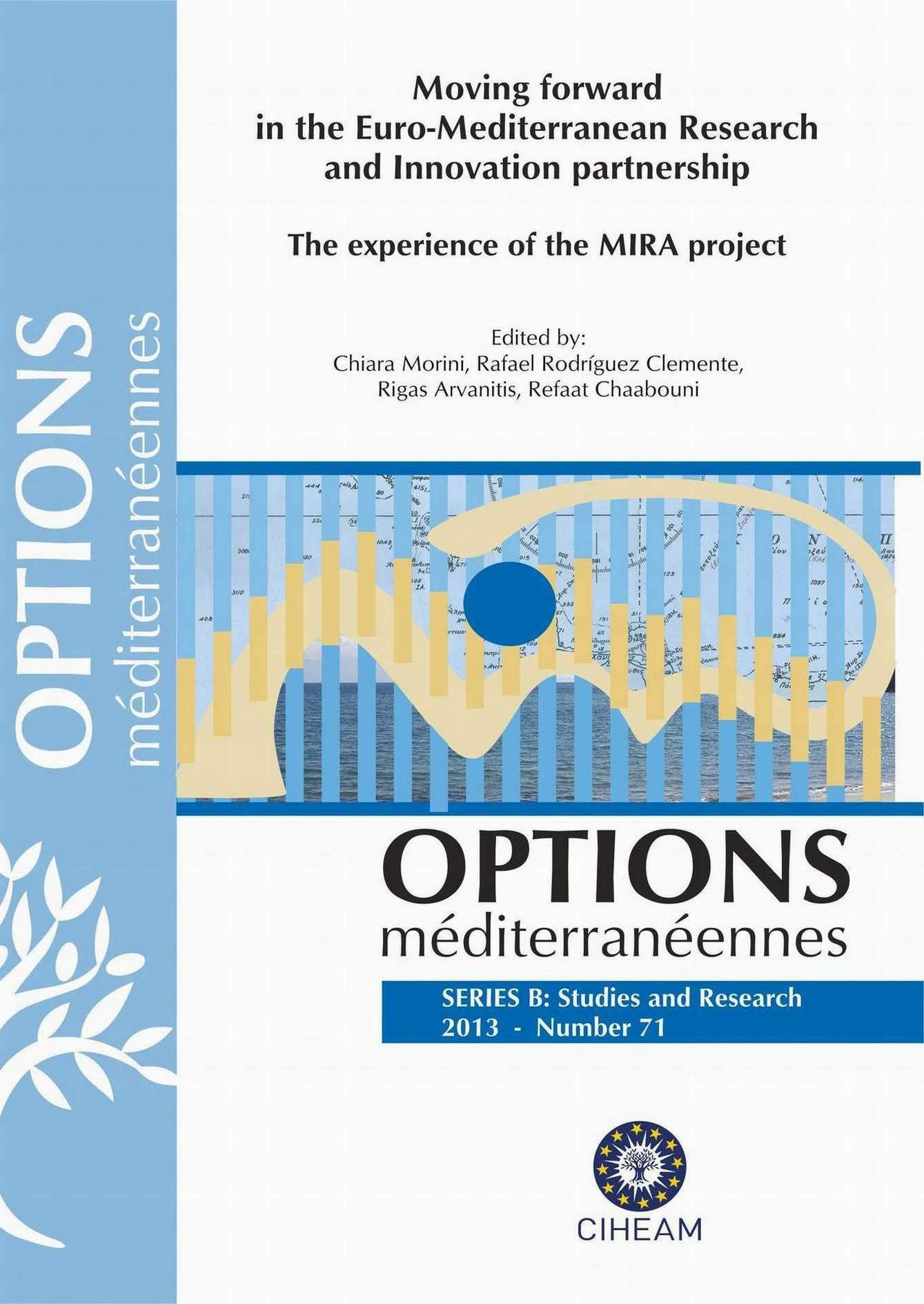| Article précédent | p. 79-102 | Article suivant |
Euro-Mediterranean science and technology collaborations: a questionnaire survey
This chapter is based on the results of a questionnaire survey conducted in 2011 and addressed to a population of researchers, from both European countries and EU Mediterranean Partner Countries (hereafter referred to as MPCs), whose international collaborations/co-publications involved both the two geographical regions during the period 2005-2010. Four thousand three hundred forty (4,340) scientists filled in the questionnaire in 38 countries altogether (27 in Europe and 11 MPCs) with a balanced distribution of responses, i.e. 48% of the respondents working in Europe and 52% in the MPCs. The response rate (17%) is considered as satisfactory. Responses are heavily concentrated in larger countries: five countries, i.e. France, Italy, Spain, Germany and the United Kingdom, accounted for ¾ of the responses in Europe (74.7%), while in the MPCs the first five countries, namely Turkey, Israel, Tunisia, Algeria and Egypt, accounted for 82.6% of the responses. The main findings show that the asymmetry in collaboration, which was recognised as a source of tension and a burning issue in the 1970s and the 1980s, has developed into a more equal partnership and that international collaboration is a win-win process that benefits all partners with very significant outcomes in both regions. International collaboration addresses and involves very dedicated and goal-oriented individual scientists who seek to increase and improve their scientific capacities and develop greater international recognition.
Ce chapitre présente les résultats d’une enquête questionnaire menée en 2011 auprès d’une population de chercheurs travaillant soit dans un pays européen soit dans un pays méditerranéen partenaire de l’UE (dénommé PPM dans la suite du texte) dont les collaborations et/ou publications internationales associent des chercheurs des deux régions géographiques au cours de la période 2005-2010. Quatre mille trois cent quarante (4.340) chercheurs de 38 pays (27 en Europe et 11 PPM) ont rempli le questionnaire. Les réponses se répartissent de façon équilibrée entre l’Europe (48%) et les PPM (52%). Le taux de réponse (17%) est considéré comme satisfaisant. Ces réponses sont fortement concentrées dans les pays les plus importants : 5 pays (France, Italie, Espagne, Allemagne et Royaume-Uni) recueillent ¾ des réponses (74.7%) en Europe et les 5 premiers pays PPM (Turquie, Israël, Tunisie, Algérie et Egypte) concentrent 82.6% des réponses. Les principaux résultats montrent que l’asymétrie des collaborations, perçue comme une source de tension et de confrontation au cours des années 1970 et 1980, s’est transformée en un partenariat plus équilibré. Ils montrent également que la collaboration internationale est un partenariat gagnant-gagnant qui bénéficie à l’ensemble des parties prenantes et produit des résultats significatifs autant en Europe que dans les PPM. La collaboration internationale concerne et implique des chercheurs déterminés en quête d’un accroissement qualitatif et quantitatif de leur production et capacité scientifiques et d’une plus grande reconnaissance internationale.
- [ Afficher ]
- [ Télécharger ]
- [ Exporter la citation ]
Vous pouvez télécharger la citation au format :
- [ Imprimer ]
-
Mots-clés
ENQUETE, MOBILITE DE LA MAIN D'OEUVRE, PARTENARIAT, PAYS DE L'UNION EUROPEENNE, REGION MEDITERRANEENNECiter cet article
Gaillard A.-M., Canesse A.-A., Gaillard J., Arvanitis R. Euro-Mediterranean science and technology collaborations: a questionnaire survey. In : Morini C. (ed.), Rodriguez Clemente R. (ed.), Arvanitis R. (ed.), Chaabouni R. (ed.). Moving forward in the Euro-Mediterranean Research and Innovation partnership. The experience of the MIRA project. Bari : CIHEAM, 2013. p. 79-102. (Options Méditerranéennes : Série B. Etudes et Recherches; n. 71). http://om.ciheam.org/om/pdf/b71/00006774.pdf



